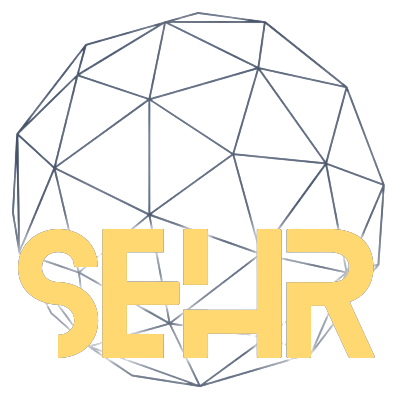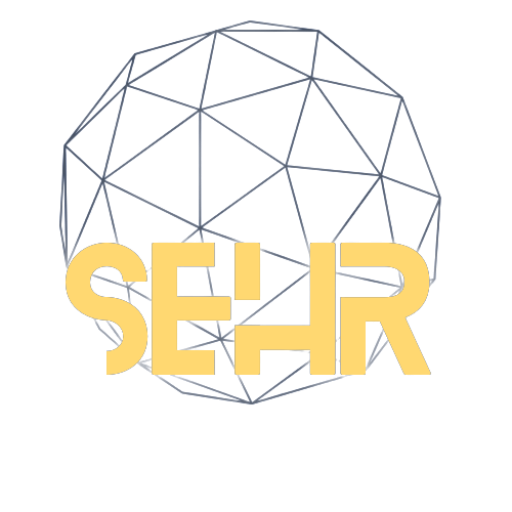Events
October 2024: User Consultation organised by EUSPA in cooperation with SEHR
The Agency for the European Space Programme (EUSPA) organises regular user consultations for the most important user communities of satellite data and satellite information.
On the basis of the outcome of the research under the Thesis Lab and based on the conclusions of the June seminar, it became clear the (fragmented) user community should be addressed further. A warm thank you to the EUSPA team in particular to Vasilis Kalogirou for being open to explore this special use of satellite data and to Aldorane for organizing the meeting. SEHR contributed to this meeting by arranging presentations and mobilizing the user community
within the SEHR network.
The presentations and discussions attended by around 50 participants took place in a dedicated session under the established use community ‘Emergency Management and Humanitarian Aid’. The meeting illustrated that the specific user community working in Human Rights and Prosecution of violations of these rights and of International Humanitarian law needs assistance as is given to other user domains such as transport, health, aviation and urban development.
The main conclusions are:

- Satellite EO is relevant to monitor Human Rights, report violations, investigate
and prosecute cases - The only independent way to get evidence in some cases
- Specific challenges:
- Simplify access to data
- Need to have historical data
- Technical expertise and training required (ESA provides training,
EU Space Academy, UNOSAT, Satcen…) - Lack of standards and common taxonomy (possible ongoing work
by JRC) - Costs are an issue
- Raw images vs analysed images
- Integrity of the image and chain of custody
- Specific Copernicus services/hub for humanitarian needs?
- Market imbalance
- Collaboration with national entities in data sharing
- Need for a centralized hub
SEHR will continue working with the user community to get more insight into the need for access to expertise, best practices, and data.
June 2024, Leiden-Delft-Erasmus Seminar: Satellite Data in the Context of Human Rights and Humanitarian Law: Lessons Learned and Steps to take
(The seminar report is published on this website under ‘Resources’)
Space Evidence for Human Rights (SEHR) is looking back on a successful and rewarding seminar on 21 June. Speakers and the students of the Leiden-Delft-Erasmus Universities Thesis Lab on Satellite Data and Human Rights and Humanitarian Law provided new insights and very valuable building blocks to implement the conclusions of the seminar held on February 2023.
Thank you Molly Quell and Stephanie van den Berg and Vincent Cillessen for your interesting introductions.
Other new insights came from the study of the students from the Rotterdam School of Management, Erasmus University(RSM) into possible barriers for organisations and the private sector to become active in this field. Students from the International Institute of Air and Space Law (IIASL), Leiden University, the Grotius Centre for International Legal Studies and from the Kalshoven-Gieskes Forum on International Humanitarian Law worked on the legal questions connected to the collection, storage and use of satellite data and information.
Thank you Alexander Gunkel Space4Good, Celia Davies Omanos Analytics, Hans van ‘t Woud BlackShore, Vasilis Kalogirou EUSPA – EU Agency for the Space Programme, Dimitra Stefoudi and Sabrina Rewald Leiden-Delft-Erasmus Universities for contributing to the lively panel discussion.
A special word of gratitude to the staff of the LDE Thesis Lab: Tanja Masson-Zwaan, Robert Heinsch, Ramon Hanssen, Sabrina Rewald, JD LLM, Dimitra Stefoudi and the Leiden-Delft-Erasmus Universities coordinator Peter Batenburg.
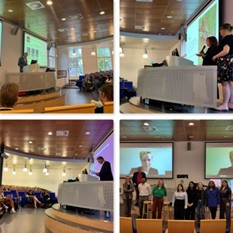
February-June 2024: Leiden-Delft-Erasmus Thesis Lab contributes to the research on the conclusions of the SEHR seminar in February 2023.
From February to June 2024 a multidisciplinary group of 11 students from the LDE universities researched different aspects of the conclusions resulting from the 2023 SEHR seminar. These aspects included the legal environment and business aspects for using satellite data in prosecuting violations of human rights and humanitarian law. Subjects cover Humanitarian, International and Space Law, Strategic Business Development and connections to geo-sciences. The Lab provided students with a multidisciplinary insight in the subject of this use of satellite information.
Besides introductions to Space Law, International Humanitarian Law and the techniques of Earth Observation, the students discussed the subject with the International Criminal Court, the European Space Agency (ESA) and the Agency for the European Space Programme (EUSPA).
Students from the Erasmus/Rotterdam School of Management conducted an in depth research to the market alignment for this specific user group of satellite data, including possible barriers for the well functioning of this market.
Students from the International Institute of Air and Space Law covered aspects concerning the legality of using the data for this purpose and the legal conditions for creating a data service/hub. Students from the Kalshoven-Gieskes Forum on International Humanitarian Law addressed the possible role of satellite data in distinction, proportionality an precaution.
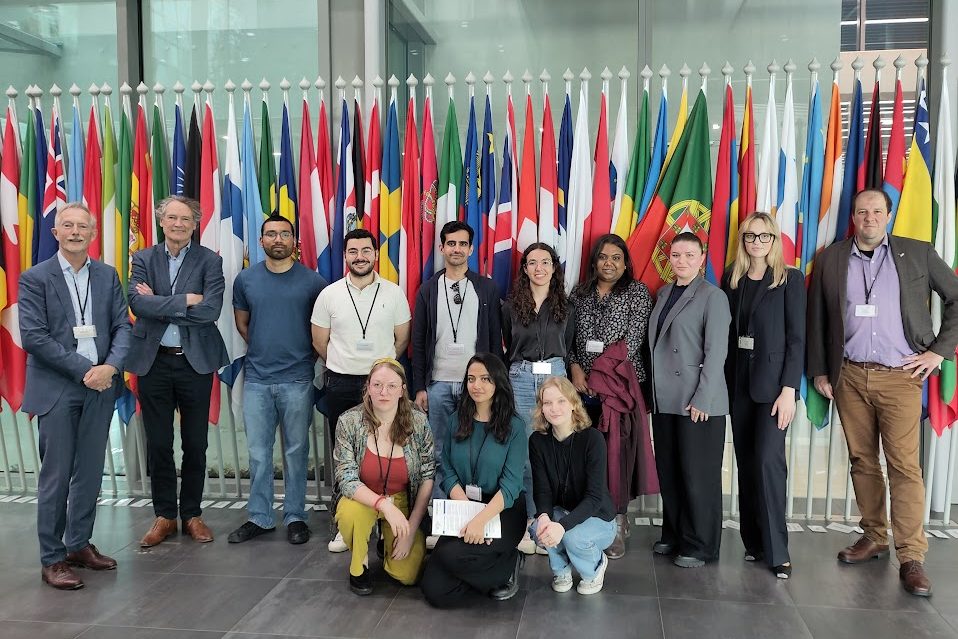
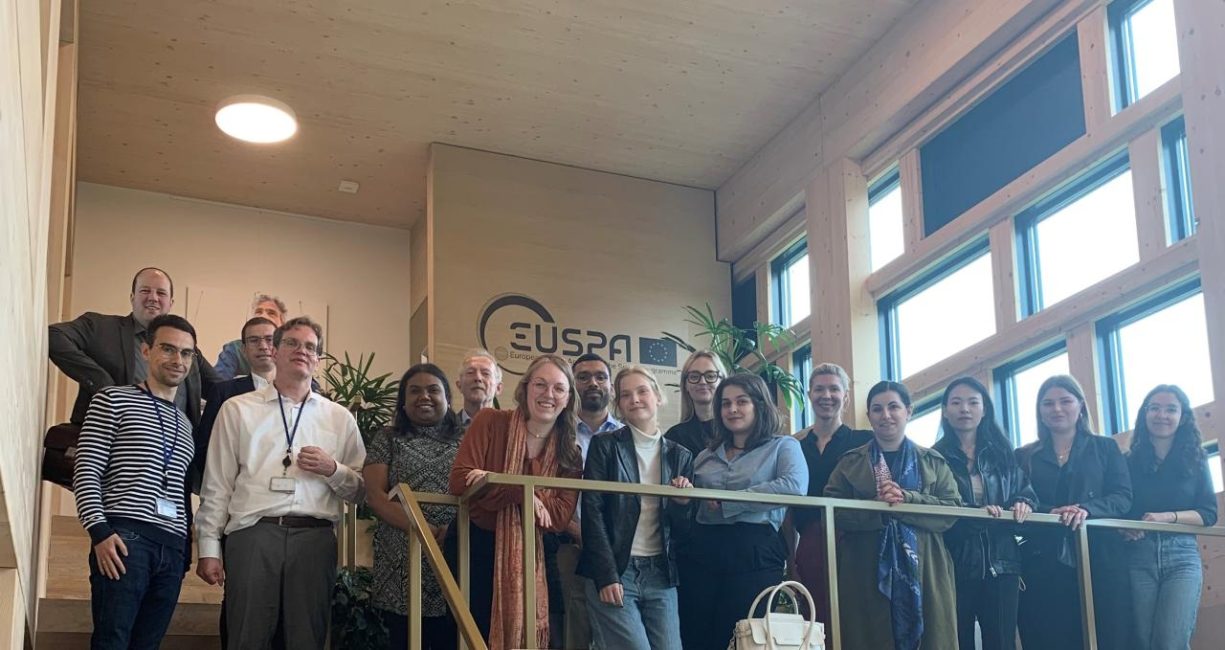
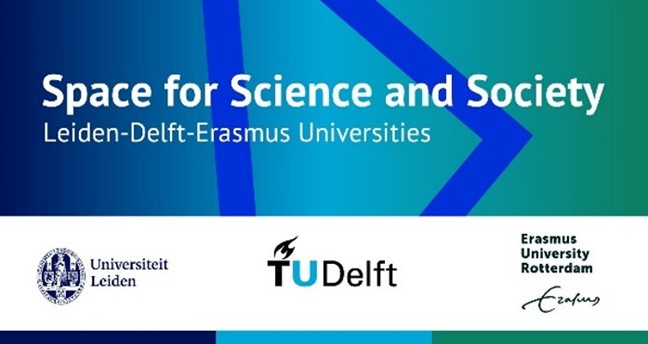
February 2023: seminar ‘The optimization of the use of satellite information in the humanitarian domain’
Proud to present the report of the seminar ‘The optimization of the use of satellite information in the humanitarian domain’ which took place on 3 February 2023. Please find the text under ‘Resources’ on this website.
This seminar was hosted by the Faculty of Law of Leiden University.
Thank you for your contributions: International Institute of Air and Space Law (IIASL), Leiden University, Kalshoven-Gieskes Forum on International Humanitarian Law, EUSPA – EU Agency for the Space Programme, European Space Agency – ESA, SatCen, TU Delft | Civil Engineering and Geosciences, Bas Jacobs, Jonathan W. Hak, Marco Beijersbergen and Anmol Dhawan.
